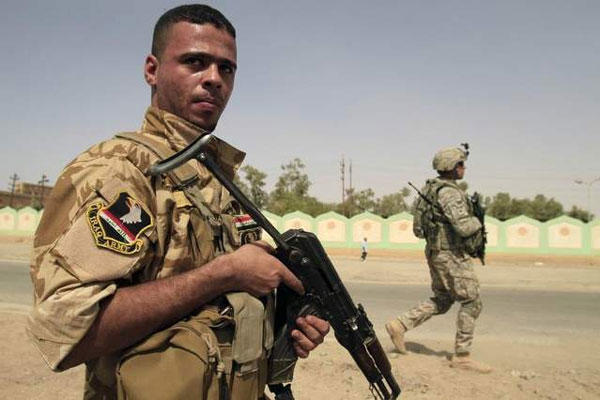Three former Iraqi government officials said Sunni forces in the campaign against Islamic State are asking Congress for direct delivery of U.S. arms needed for the fight.
The three, Atheel al-Nujaifi, former governor of Ninevah province, Rafia al-Issawi, former Iraqi Finance Minister, and Sheikh Khamis al-Khanjar, a wealthy Iraqi businessman currently living in Dubai, want U.S. lawmakers to consider speeding up the arms delivery to Sunni fighters, similar to the push to supply weapons to Kurds in the north.
In both cases the Shiite-dominated central Iraqi government in Baghdad has been delaying the delivery of U.S.-supplied weapons, the three said in a Dec. 8 letter to Rep. Edward Royce, a Republican from California and chairman of the House Foreign Affairs Committee, and Rep. Eliot Engel, a Democrat from New York and ranking member of the panel.
"[Members] of your committee and others have rightly concluded that alternative mechanisms must be established to enable Sunni forces to join in the fight against ISIS and -- like the Kurdish people -- defend themselves, their communities and their nation," the three, who now head up The Office of the Arab-Sunni Representative for Iraq, stated in the letter.
The organization represents an emerging coalition of Sunni leaders with supporters inside Iraq, as well among those who are now living in exile.
On Wednesday, the House committee voted in favor of a bill to deliver U.S. weapons and supplies directly to the Kurds. The bill must still be passed by the entire House before going on to the Senate. Though there was some discussion of expediting delivery of arms to Sunni fighters, the panel took no action.
In their letter, the three Iraqis recalled the important roleplayed by Sunnis in the fight against al-Qaida when the U.S. was still fighting in Iraq.
"The Sunni Awakening of the last decade, which extinguished the threat posed by al Qaeda in Iraq, stands as a vivid reminder of the successes we can achieve together through resolute action," they wrote.
In testimony before the House Armed Services Committee last week, Defense Secretary Ashton Carter conceded that U.S. arms and supplies intended for Sunni forces fighting against ISIS in Iraq move "much more slowly, frustratingly through the Iraqi government." He did not elaborate.
The Iraq government established after the U.S. invaded Iraq and overthrew Saddam Husseini in 2003 was dominated by Shiites, which had been historically oppressed under Saddam and his Sunni-led regime.
It was only through U.S. pressure that the Baghdad government -- then headed by Prime Minister Nouri al-Maliki -- shared power and Sunnis were represented across the government. But once the U.S. pulled out of Iraq, the situation deteriorated and Sunnis found themselves increasingly marginalized.
It didn't help that Sunni troops of the Iraqi army cut and ran when ISIS forces swept into Iraq in 2014, taking over large areas that included the cities of Mosul and Ramadi. The Kurds, on the other hand, demonstrated willingness to fight and a combat capability that was lacking elsewhere in Iraq.
Largely for that reason, Royce and a number of other lawmakers, Republican and Democrat, agreed to vote in favor of a bill to send the materials directly to the Kurds in northern Iraq.
The Sunni Iraq group asked Royce and Engel for the same arrangement.
"There is no solution to this [ISIS] threat without the active participation of our community," they wrote, "Sunnis, like Kurds, have a rightful role in protecting their homeland and a voice in Iraq's future," they wrote."
--Bryant Jordan can be reached at bryant.jordan@military.com. Follow him on Twitter at @bryantjordan.





























